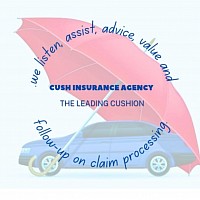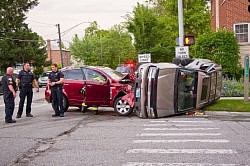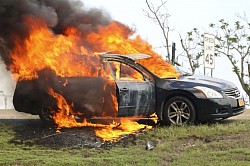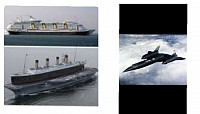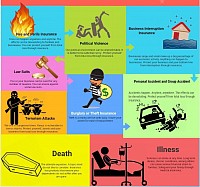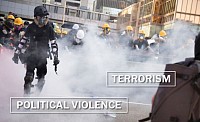ALL INFORMATION AND ANSWERS
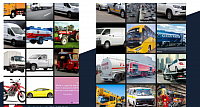
Car,bus,matatu,taxii,uba,pickup,lorry,tuk tuk,motorbike,fire extinguisher,clean water, petroleum,cranes,tractors and all motor
1. MOTOR VEHICLE
MOTOR VEHICLE
What are the different types of car insurance?
THERE ARE THREE CATEGORIES OF VEHICLE INSURANCE COVERS.
1.Third party cover(TPO)- It covers damages, injury or death caused to the third party. When your car is insured under a third party cover, it means that if you get into an accident, the insurance company will only pay for damages to third party property such as buildings and cars or injury to the third party and not to yourself or your car. When involved in an accident the insurance protects the other driver and passengers in case of bodily injury, permanent total disability, and death. In case of an accident, it will help cover damages to the property.
2. Third party, fire, and theft(TPFT)- car insurance covers you for any damage made to a third party, their vehicle, or property due to an accident. It also covers you for damage caused by fire or having your vehicle stolen. Third party, fire, and theft does not cover your own vehicle if it's damaged in an accident.
3. Comprehensive cover(comp)- A comprehensive insurance cover offers financial security in case of a road accident or in case your car is stolen, damaged due to fire, riots or natural disasters like floods. This cover also offers third party benefits such as damages to other people's properties like vehicle or buildings, injuries and death. comprehensive car insurance cover – sometimes known as fully comprehensive cover, pays out if you damage your car, someone else's car or injure someone in an accident, regardless of who is at fault. Comprehensive car insurance also covers you against fire and theft.
comprehensive car insurance in Kenya does not typically cover the driver or immediate passengers in the event of an accident, you can take out additional insurance policies to provide this type of coverage.
The standard comprehensive insurance policy does not cover immediate passengers in the insured vehicle policy. This applies to both commercial/transport as well as private vehicles. In case of an accident, there is a possibility that passengers can be injured or even lead to deaths. As the name suggests, Motor Vehicle Comprehensive policy only protects damage or loss to the motor vehicle and any claim made by the third parties.
Windscreen(front and rear) and music system are covered at certain amount limits depending on the company ,and windscreen claim is NOT subjected to assessment, excess amount and police abstract documentary(any cost is replaceable).
The difference between the actual value of the windscreen/music and the company limit is covered with an additional premium of ksh.1000 at any 10,000 range. All vehicle parts subjected to wear and tear requires client contribution at the time of repair. All pre-existing damaged parts or cracked parts of the vehicle require a client contribution during repair.
Please note; this is very important that insurances will only take all vehicle claims of damages 2.5% private or 5% commercials/PSV of the vehicle insured value or minimum set limit whichever is greater.
NOTE: the damage must be reported to the insurance or Agent within 24hrs of the accident.
Benefits of comprehensive car insurance
Covers your car against accidental damage
The primary benefit of this cover is that you do not have to pay for accidental damage to your car. The cover protects your car from unfortunate damages and losses.
Includes third party liabilities
Another benefit of this cover is that it not only protects your car, it also covers loss, damages or injury caused to the third party.
Compensates you in case of car theft and fire
Comprehensive car insurance can help you in the case of theft of the vehicle or vandalism of parts or fire.
You can enhance your cover
Comprehensive car insurance cover usually has the option of enhancing it to include additional coverage that your car can receive from this insurance cover. This ensures that you have a broader cover for a wider range of risks. One of these add-ons may include courtesy car among others.
Breakdown assistance
Breakdown assistance is one of the benefits available in comprehensive car insurance. So whether you are stuck midway or having a breakdown on the road, you can easily make a call and request for breakdown assistance without it counting as a claim.
What a comprehensive insurance does not cover
It does not cover for damages caused due to normal aging or your car wearing out.
It cannot protect your car from depreciating in value overtime.
The policy does not cover for accidents and damages on cars that are caused by driving under the influence of alcohol.
COMPREHENSIVE INSURANCE COVER REQUIREMENTS.
1. Id copy.
2. Kra pin.
3. Logbook or importation document form(IDF).
4. Payments.
CLAIM REQUIREMENTS.
1. valid and legit insurance cover.
2. Vehicle must have under gone valuation process before 1month of insurance cover.
3. The Accident damage must be above 2.5% private vehicle /5% commercial vehicle of insured value.
4. Excess amount must be paid at 2.5%/5% of the value (where excess protector was not loaded). Minimum amounts of excess amount and excess protector depends on the company
5. Political violence and terrorism(PVT) not covered if was not loaded (minimum depends on the company)
6. The premium must be paid in full.
7. A new driver under 1-year experience must be charged with a novice fee.
8. windscreen and radio music are covered at certain amount depending on the company and they are NOT subjected to assessment, excess amount and police abstract documentary(any cost is replaceable).
9. All vehicle parts subject to wear and tear requires client contribution at the time of repair. All pre-existing damaged parts or cracked parts and dents of the vehicle require a client contribution during repair.
10. Complete filled claim form.
11. Drivers id copy.
12. Towing receipt copy.
13. Photos of the scene.
14. Driver License copy.
15. Driver kra pin.
15. Stamped Police abstract.
CLAIM PROCESS.
1. Submission of documents.
2. Assessment report.
3. Authorization.
4. Repairing
5. Reassessment.
6. Signing of satisfactory.
7. Release.
MOTOR VEHICLE CLAIM.
PROCESSING STEPS.
1. Take photos of the vehicle on the scene. with number plate displayed. anybody can take photos.
2. Report the incident to the agent. or insurer on the spot.(Anybody can report).
3. Report the matter to the police. For them to take particulars of the scene. or visit any police station.
4. Share the vehicle photos. of the scene. police abstract. current driving License. logbook. kra pin and I d copy.
5. Fill the claim application form.
6. Documents .will be send to the company claim department after all documents assembled.
7. Assessor. will visit within 5 working days of the week.
8. Assessor. will give a claim report to insurer within 5 working days after assessment .
9. Insurer. will issue a repair authorization letter. within 3 working days after receiving the report.
10. Garage now takes over. and will start it's repair work.
11. After repair completion. the garage will request for a release letter. which takes 1 to 2 working days.
12. client will sign a satisfaction letter.
13. Client will be released.
Please note. Third party insurance claims. must be settled under the court order . No third party insurance claim is paid without the court order.
All of this comprehensive claims steps should not be more than 4 weeks of vehicle repair completion.
EXPLANATIONS.
1.EXCESS PROTECTOR(WAIVER).
The benefit is only for accidental claims and it protects or waives out excess amount payable during claim.
The acceptable claim must be of damages of/above 2.5%(private car) of vehicle value or 5%(commercial/psv /institutional) of vehicle value with a minimum of 20,000/30,000/- and a maximum of 100,000/250,000/- respectively.
2.POLITICAL VIOLENCE AND TERRORISM
It covers all claims as a result of politics or terrorism.
3. WINDSCREEN FREE LIMIT.
The company will provide a free limit per year. This means any cost above free limit will be insurable with an additional charge of 1000/- per every windscreen extra of 10,000/- cost.
4. RADIO CASSETE/MUSIC SYSTEM FREE LIMIT
The company will provide a free limit per year. This means any cost above free limit will be insurable with an additional charge of 1000/- per every radio cassette extra of 10,000/- cost.
5. TOWING FREE LIMIT
This is a vehicle rescue during accident.
The company will provide a free limit per year. This means any cost above free limit will not be considered.
6. AUTHORISED REPAIRS FREE LIMIT
This is an urgent vehicle repair cost applied on rescue during accident.
The company will refund an urgent limited repair cost per year. This means any cost above limited cost will not be considered.
7.MEDICAL EXPENSES FREE LIMIT.
This is an urgent overall FIRST AID expenses applied on people’s rescue during accident.
The company will refund a limited urgent medical expenses per year. This means any cost above limited expense will not be considered.
8.DRIVER PERSONAL ACCIDENT.
The company will provide a DRIVER personal accident at additional charges per year.
9.STARTER AND AUTONATOR FREE LIMIT.
The company will provide a free limited amount per year. This means any cost above limited amount will not be considered.
10.COURTESY CAR/MOTOR EXTENSION.
This is a use of another car provided by insurance company during Current car compensation.
It is only useful with in 10 days after 3 days of reporting.
Additional Charges apply
11.OTHERS
Free valuation
Hire and reward may be allowed depending on the company.
EXCESS/REMARKS
Accidental 2.5%/5% of vehicle value min.20,000/30,000/- (Not payable where excess waiver applied).
Theft;
With tracking device-10% of vehicle value min.30,000/- (provide certificate).
With Antitheft device-10% of vehicle value min.30,000/-
Without any device-20% of vehicle value min.30,000/-
Third party property damage-7,500/-
New and young driver-additional of 7500/- each.
LIMITS
Third party liability – up to the legal limit.
Third party property damage- 5,000,000
Passenger legal liability-Any one person-3,000,000
Any one event-20,000,000
Medical expenses-50,000
Geographical Area is always specified.
WHAT IS EXCESS PROTECTION/WAIVER IN INSURANCE?
The excess amount charged by most car insurance companies is 2.5% of the value of the car. Motor insurance companies also have a minimum limit of excess amount.
How does it work? The excess is an agreed amount of money that you as the client is liable to pay in event of a car insurance claim being settled .Excess protection insurance helps you recover the excess you've paid after making a accident claim or it prevents payment of excess amount. The Protector is utilized/exhausted upon first claim settlement within the insurance cover and the client is adviced to activate it again with an additional premium. It's also known as insurance excess cover or excess reimbursement insurance. Excess protection is typically bought as part of a car, home, property or landlord insurance package.
NOTE: Excess protection is only designed for road accident claims only but not theft, fire or PVT. Incase of theft, fire or PVT, a client will pay excess amount that depends on company rates for the claim to be honored.
EXCESSES APPLICABLE
Accidental Damage-2. 5 % / 5% of vehicle value min 20,000/30,000
Theft with antitheft devices:10% of vehicle value
Theft without antitheft devices: 20% of vehicle Value
Third Party Property Damage -20,000/=
Young Drivers- Below 21yrs - 2.5% of value
Novice below 24 months experience - 2.5% of value
LIMITS APPLICABLE
Windscreen Limit - 30,000-100,000/=
Radio Cassette Limit - 30,000-100,000/=
Towing Limit - 30,000-100,000/=
Third Party Property Damage – Ksh.5,000,000
Third Party Persons Injury/Death – Ksh. 4,000,000/20,000,000
Excess Protector Extension (Own Damage Excess)
Personal accident for the driver
WHAT IS POLITICAL VIOLENCE AND TERRORISM IN INSURANCE(PVT).
Terrorism and political violence (PVT) insurance covers an individual or company against physical loss and damage, as well as business interruption costs, because of a terrorist act or acts of political violence such as riot, strike, civil commotion, revolution, war, civil war, rebellion, insurrection, sabotage, coup d’état and malicious damage, and consequential looting. It can occur as a stand-alone cover or as part of another policy such as Motor Vehicle insurance or Home Insurance commonly called a rider.
How Much Excess Does The Client Have To Pay Before The Car Can Be Repaired?
Without Excess Protector
2.5% / 5% of value
With Excess Protector
The client pays Ksh 0 because the excess is more than the minimum amount of Ksh 20,000. So the insurance company pays for the full cost of the damages to get the car repaired.
Note : If the repair costs/expenses are below Ksh 15,000 the client is expected to pay the full cost of the costs. This is to reduce the abuse of the Excess Protector for small repair expenses.
So, the Excess Protector serves a major purpose to completely eliminate or greatly reduce the excess amounts paid by a client when a claim is raised
There Are 2 Types Of Excess Protector:
Own Damage Excess Protector
This is applicable for claims for repairs to the insured vehicle arising out of a traffic accident. For private motor insurance in Kenya, this is normally set at 2.5% of the value of the car with a minimum excess value of KSh 20,000. Commercial vehicles and PSVs are set at 5% of the value of the vehicle and minimum excess value also at KSh 30,000.
Theft Excess Protector
This applies for theft of the insured car. It can apply to partial theft or total theft. Partial theft is when a part or parts of the vehicle are stolen but the not the vehicle in its entirety, commonly the side mirrors, tyres, front grill, wheel caps are stolen from parked vehicles in Kenya. Total theft is commonly executed using car jackings/robberies.
There are different excess rates for claims made for car theft, depending on the security of the car. Clients with cars fitted with Anti Theft Devices (ATD) or Tracking Systems pay smaller excesses in the event of car theft. Percentages for the excess liable vary from as low as 2.5% of car value to as high as 25% of car value depending on the security features of the insured vehicle. It is therefore advisable to fit one’s vehicle with the necessary security devices as it reduces the chances that it can be stolen and secondly, in the case of theft, the security devices make it easier to track and recover the vehicle. Finally as stated above, the owner of the vehicle is liable to a much smaller excess for the insurance claim in the event that the car is stolen
No Blame No Excess
This is a common insurance principle which applies to car insurance in Kenya. When the insured/client is involved in road accident and the third party (other driver/vehicle) is to blame for the accident and this is captured and acknowledged in the police abstract. Here, the insurance company of insured/client will cover all the damages from the accident and the client does not have to pay any excess amounts. This is under the insurance principle of subrogation.
The insurance principle of subrogation is the legal principle under which an insured party surrenders its rights against a third party to the insurer after claiming and receiving a compensation for an insured loss.
Caveat : If the damage is below the excess amount, the insured/client is still expected to meet all the costs of the repairs.
Note:
Damage to the windscreen glass and the radio/entertainment system is covered separately on comprehensive car insurance policies. Therefore, the excess is not charged on the damages to the windscreen and car radio, the insurance company pays 100% of the claim expenses. Most insurers authorise the repairs to be done by the client and refund the costs there after so as to expedite the process. It is important to check what limits for the windscreen and radio cassette are provided by the motor insurance cover in Kenya before purchasing it, some insurers provide as low as KSh 20,000 while others provide higher limits up to KSh 100,000 for right about the same price.
The Excess Protector expires immediately after use. This means that if a claim is raised on a policy and the excess protector is triggered/used, then it will have to be bought again immediately for the remainder of the policy or at the renewal of the policy as per what the client desires
Does Insurance Cover Pre-Existing Damage?
Insurance policies do not usually cover pre-existing damages. Pre-existing damage refers to any damages that your vehicle already had before you bought your insurance policy. This may include previous damages that you didn't repair or normal wear and tear to your vehicle.
Your insurance company is unlikely to cover pre-existing damages for the following reasons:
They are not required to cover damages to your vehicle that occurred before you had a policy with them.
They do not have the facts they would need to make a determination on your claim.
If insurance companies covered pre-existing damages, their liability would likely increase significantly. This would, in turn, increase the average policy rates.
Can I Buy Insurance with Pre-Existing Damage?
While it may be possible to buy insurance with pre-existing damage, you will have to notify your insurance company of the damages(during valuation). This can lead to higher rates while also affecting any future claims you make. If you file a claim at a later date, they can use information from your application process. According to ConsumerLawPA.com, they can even use this information against you, potentially denying the claim.
Your insurance company may also question if the newer damage was due to a recent accident or if the pre-existing damage was its cause. Existing damage will also make it difficult to buy an insurance policy that includes comprehensive or collision coverage. These policies offer the following coverages:
Comprehensive: Comprehensive covers damages to your vehicle that are not due to an accident. This might include weather-related damage or theft.
Collision: Collision covers damages to your vehicle due to an impact on another vehicle or object. This includes accidents with other vehicles or if you were to run into a tree.
Because liability insurance is a requirement in most states, pre-existing damage should not prevent you from buying it. However, liability insurance only covers damages that you cause to another driver's vehicle. It does not cover the damages to your vehicle, so whether or not you have pre-existing damage doesn't matter as much. It is always important, however, to ensure that pre-existing damage is not making your vehicle unsafe.
Even if you can get insurance with it, making repairs to certain mechanical parts or the exterior structure may be important for safety purposes.
When Is an Inspection(valuation) Required for Insurance?
Several insurance companies require complete inspection before buying full coverage. During this inspection, they will take photographs and send them to the insurance provider.
The inspection will look at factors such as:
The vehicle's total mileage
The overall physical condition of the vehicle
Features equipped in the vehicle
Accessories or after-market parts
The general appearance of the vehicle
If there are any damages present
The inspection will also double-check that the details you provided when obtaining a quote match the actual description of the vehicle. This is done to reduce inaccurate claims, which can make full coverage more affordable for everyone.
Failing to complete it within the time period will usually void your policy. Different insurance companies have different timelines, so be sure you know how long you have to schedule an inspection. Your insurance company will use the CARCO report to adjust your rates as needed. They will also use the report to guide future claims.
Minimal damage may not prevent you from getting insurance, but the provider has other ways to learn more information about your vehicle. They can use your vehicle's VIN to learn about its history. A VIN will track if the vehicle has been in an accident or has a salvaged title. This number, which is assigned to each vehicle, will notify them of any previous insurance claims in which the vehicle has been involved.
How to File a Claim with Pre-Existing Damage
While there is no guarantee that your insurance company will cover your damages if you have pre-existing damages, taking certain steps before filing can help you improve your chances:
Take photographs: Photographs can be good evidence if you have to file a new claim. You should take photographs of the pre-existing damage, as well as any new damages.
Work with a lawyer: If your insurance company denies your claim or won't work with you, you can find out your legal options by talking with a lawyer.
Work with the appraiser: When you file an insurance claim, the company will assign an adjuster to your account. Communicate with them and follow all their directions.
Maintain good vehicle records: In addition to photographs, it is also helpful to maintain good records. Keep track of any repairs you do receive, as well as other related maintenance.
Notify your insurance company of repairs: If you do decide to make repairs to pre-existing damages, notify your insurance company. It is important they have the most up-to-date information.
The more organized that you are with your records, the better your chances of having a claim approved with pre-existing damages. When shopping around for the best insurance rates, be sure to notify each insurance provider of the specific type and extent of damages for the most accurate rates.
The condition of your vehicle doesn't matter when buying liability insurance. However, if you want full coverage, you may have to undergo an inspection, and honesty will ensure you are properly covered.
Motor PSV Third Party Insurance and Passenger Legal Liability(PLL).
This covers the insured against third party liabilities for persons and property in the event of an accident. During underwriting managers meeting on 4th July 2023 KENYA, it was discussed that it is NOT mandatory to include the Passenger Legal Liability (PLL) that caters for the passengers. AKI circular released on 23rd oct,2023 allows removal of PLL from motor commercial certificates -B series hence forth except institutional vehicles and bikes.
But what is a legal liability to passengers' coverage? Legal liability to passengers coverage refers to limited coverage to you or the authorized driver from any legal liability for death or bodily injury of a passenger due to your or the authorized driver's negligence .
Incase of an accident, Do not accept liability
Knowing this should also act as a reminder that the same applies to you when you feel that the other party is to blame. Insurance companies will also warn you against accepting liability for an accident, because admitting liability may invalidate your policy. If the defendant's side denies liability, this means that they do not accept that the defendant was responsible for your accident. If the defendant fails to accept liability, the next most likely step in your case is to get supporting evidence to present to the defendant.
The reasons why you should NOT admit fault when a car accident occurs
When you are involved in an accident, it is difficult to remember what you need to do as the whole situation is overwhelming. As a driver, it is important to know what mistakes to avoid when you are involved in an accident.
These mistakes may lead to a troubling insurance claim process and even legal ramifications. After the accident has occurred, it is likely you will be a bit shaken, confused and emotionally unstable. It is for these reasons that it’s important to keep the following vital things in mind. They will help you avoid making mistakes that could turn out costly in the end:
These are the reasons why you should NEVER admit fault after a car accident and the related consequences of doing so
If you blame yourself for the accident, don’t admit to being at fault to anyone at the scene. The law doesn’t require you to admit to being liable for the accident. Don’t allow the other party or witnesses to pressure you to admit being at fault. Knowing this should also act as a reminder that the same applies to you when you feel that the other party is to blame.
Insurance companies will also warn you against accepting liability for an accident, because admitting liability may invalidate your policy. It is important to let the authorities and insurance investigators process the evidence and determine who is liable; this may not sit well with your moral compass, but you do not know all the factors that played part in the accident.
After an accident, you are likely to suffer from shock, making it hard to take every detail into consideration.
In cases where you accept the liability verbally, one can still argue that they haven’t admitted to anything since it wasn’t in writing. However, this is risky as a witness could quote you in court or when the police are taking details of the accident report at the scene of the accident.
You cannot go back on your admission as it could be considered perjury. Perjury has serious legal repercussions and admission of guilt puts you at risk of losing any compensation from the car accident.
Sometimes it is close to impossible to refrain from admitting liability. In car accidents where there is:
• Minimal damage
• No clear injuries
• The cost of repairing the damage is relatively cheap
You may be tempted to accept liability for the accident. However, risks such as later discoveries of injuries and medical conditions will make you liable to legal suits. Avoid this by simply exchanging insurance information with the other party and not taking responsibility for the accident.
If the other party is to blame
If you know for a fact that the other driver is to blame, make a note of your suspicions. They might have been using their phones or under the influence of drugs when the crash occurred. Provide the police and insurance investigators with this information to help them in their investigations.
Legal advice
In cases where you already admitted to being responsible for the accident, seek legal help immediately. Your legal team will give you the dos and don’ts that apply to your situation. They will also help you if you do end up making a compensation claim.
What does an open claim mean?
Open claim means a claim that has yet to be settled, or otherwise disposed of, where the insurer expects to make future indemnity and expense payments on behalf of the insured.
2. HEALTH/MEDICAL COVER
.HEALTH/MEDICAL COVER
Table of Contents
What Are Copays, Deductibles, and Coinsurance?
High-Deductible Health Plans (HDHP)
Federal Health Insurance Plans
Individual, family and corporate -inpatient, outpatient, maternity, optical and dental
HEALTH/MEDICAL COVER
What Is Health Insurance?
Health insurance is a contract between a company and a consumer. The company agrees to pay all or some of the insured person's healthcare costs in return for payment of a monthly premium.
The contract is usually a one-year agreement, during which you are responsible for paying specific expenses related to illness, injury, pregnancy, or preventative care.
KEY TAKEAWAYS
Health insurance pays most medical and surgical expenses and preventative care costs in return for monthly premiums.
Generally, the higher the monthly premium, the lower the out-of-pocket costs.
Insurance plans have deductibles and co-pays, but these out-of-pocket expenses are now capped by federal law.
Medicare, Medicaid, and the Children's Health Insurance Program (CHIP) are federal health insurance plans that extend coverage to older, disabled, and low-income people.
Health insurance agreements in the U.S. generally come with exceptions to coverage including:
A deductible that requires the consumer to pay certain healthcare costs "out-of-pocket" up to a maximum amount before the company coverage begins
One or more co-payments that require the consumer to pay a set share of the cost for specific services or procedures
why health insurance important Health insurance: How it protects you from health and financial risks
No one plans to get sick or hurt, but most people need medical care at some point. Health insurance covers these costs and offers many other important benefits.
Health insurance covers essential health benefits critical to maintaining your health and treating illness and accidents
Health insurance protects you from unexpected, high medical costs.
You pay less for covered in-network health care, even before you meet your deductible.
You get free preventive care, like vaccines, screenings, and some check-ups, even before you meet your deductible.
If you have a Marketplace plan or other qualifying health coverage through the plan year 2018, you don’t have to pay the penalty.
10 KEY HEALTH INSURANCE TERMS EXPLAINED
What are the conditions of a policy?
Policy conditions are the provisions in an insurance policy that often require the insured to comply with certain requirements to obtain coverage under the policy. Policy conditions can be overlooked because they are not in the insuring agreement, the exclusions, or the definitions.
Simply having the basic understanding of terms used in insurance can make the difference between having a plan that will cover you against potential risks and having a plan that will not meet your insurance needs.
This article will help you understand some of the common terms used in health insurance.
Annual Limit
This is the maximum amount of money your insurance company will pay for the benefits in which you are covered within a year.
Bed Limit
This refers to the cost of accommodation including the standard meals served by the hospital.
Chronic disease
This refers to a medical condition that has one of the following characteristics:
Has no treatment/cure
Needs prolonged treatment or management
Can change your body in a way that cannot be reversed
Dependents
Spouse and/or unmarried children of an insured who are eligible to be covered.
Exclusions
These refer to a set of conditions and/or services that are not covered in a health insurance plan. These conditions are stated in the medical insurance contract between the insured and the insurer also known as a policy document, and the insurance company will not cover any claim submitted for such conditions.
Inpatient
Inpatient care generally refers to any medical service that requires admission into a hospital or medical facility. Health insurance companies usually require you to be formally admitted into a hospital for a stay for a service to be considered inpatient. The cost shall be recovered from the members hospitalization benefit.
Lapse
This refers to the end of a policy once the period of cover has ended.
Outpatient
This refers to medical treatment or consultation that does not require a day admission or an overnight stay at a medical facility.
Provider network
This refers to a group of medical providers that have contracted with the insurance company to provide health care services. CIC Group has an extensive list of medical providers.
Sublimit
This is where certain and specified types of illnesses and conditions are not covered up to the full inpatient or outpatient limit the client has taken. For instance, if you have an inpatient cover limit of KES 1 Million, there are illnesses or conditions that are not covered up to KES 1 Million rather, they are covered up to KES 200,000.
While there are more health insurance terms than the ones outlined in this article, these are some of the most common definitions that will be of help when purchasing a health insurance policy.
How Health Insurance Works
In the United States, health insurance is tricky to navigate. It is a business with a number of regional and national competitors whose coverage, pricing, and availability vary from state to state and even by county.
About half of the U.S. population has health insurance coverage as an employment benefit, with premiums partially covered by the employer.1 The cost to the employer is tax-deductible to the payer, and the benefits to the employee are tax-free, with certain exceptions for S corporation employees.23
Self-employed people, freelancers, and gig workers can buy insurance directly on their own. The Affordable Care Act of 2010, commonly called Obamacare, mandated the creation of a national database, HealthCare.gov, which allows individuals to search for standard plans from private insurers that are available where they live. The costs of the coverage are subsidized for taxpayers whose incomes are between 100% and 400% of the federal poverty threshold.4
Some states created their own versions of HealthCare.gov that are tailored to their residents.
People over the age of 65 and those with disabilities, End-Stage Renal Disease, or ALS qualify to receive federally-subsidized care through Medicare, while families whose incomes are near the poverty level are eligible for subsidized Medicaid coverage.56
Types of Health Insurance
Health insurance can be tricky to navigate. In the U.S., managed care insurance plans require policyholders to get their care from a network of designated healthcare providers. If patients seek care outside the network, they must pay a higher percentage of the cost. The insurer may even refuse payment outright for services obtained out of network.
Many managed care plans—for example, health maintenance organizations (HMOs) and point-of-service plans (POS)—require patients to choose a primary care physician who oversees the patient's care, makes recommendations about treatment, and provides referrals for medical specialists.
Preferred-provider organizations (PPOs), by contrast, don't require referrals but do set lower rates for using in-network practitioners and services.
Insurance companies may deny coverage for certain services that were obtained without preauthorization. They may refuse payment for name-brand drugs if a generic version or comparable medication is available at a lower cost. Check an insurance company's rules before your buy their insurance.
What Are Copays, Deductibles, and Coinsurance?
Most health insurance plans require their customers to pick up some of the costs of their coverage in various ways:
The deductible is the amount you pay out of pocket every year before the insurer begins to meet the costs. This is now capped by federal law.7
Copays are set fees that subscribers must pay for specific services such as doctor visits and prescription drugs even after the deductible is met.
Coinsurance is the percentage of healthcare costs that the insured must pay even after they've met the deductible (but only until they reach the out-of-pocket maximum for the year).
Insurance plans with higher out-of-pocket costs generally have smaller monthly premiums. When shopping for plans, weigh the benefit of lower monthly payments against the potential risk of large out-of-pocket expenses in the case of a major illness or accident.
If you're self-employed, you may be able to deduct up to 100% of health insurance premiums you pay out of pocket.8
High-Deductible Health Plans (HDHP)
One increasingly popular type of health insurance is the high-deductible health plan (HDHP). These plans have higher deductibles and lower monthly premiums. Their users are the only ones eligible to open a Health Savings Account (HSA) that has substantial federal tax benefits.
For 2024, a high-deductible health plan is one that has deductibles of at least $1,600 for an individual or $3,100 for a family. Total out-of-pocket maximums are $8,050 for an individual and $16,100 for a family.9
High-deductible health plans offer a unique advantage in that if you have one, you're permitted to open—and contribute pretax income to—a health savings account, which can be used to pay for qualified medical expenses. These plans offer a triple tax benefit in that:
Contributions are tax-deductible
Contributions grow on a tax-deferred basis
Qualified withdrawals for healthcare expenses are tax-free10
Note; You can withdraw money from an HSA after age 65 for any reason with no tax penalty, but you will pay income tax on the withdrawal if the money is not used for qualified medical expenses.11
Federal Health Insurance Plans
Not all health insurance in the US is provided by private companies. Medicare, Medicaid, and the Children's Health Insurance Program (CHIP) are federal health insurance plans that extend coverage to older, disabled, and low-income people.
The Affordable Care Act (ACA)
In 2010, President Barack Obama signed the Affordable Care Act (ACA) into law. In participating states, the act expanded Medicaid, a government program that provides medical care for individuals with low incomes.
The Affordable Care Act has prohibited insurance companies from denying coverage to patients with preexisting conditions and has allowed children to remain on their parents' insurance plan until they reach the age of 26.12
In addition to these changes, the ACA established the federal Health Insurance Marketplace. It also prohibits insurance companies from denying coverage to patients with preexisting conditions and allows children to remain on their parents' insurance plan until they reach age 26.
The Marketplace helps individuals and businesses shop for quality insurance plans at affordable rates. Insurance available through the ACA Marketplace is required to cover 10 essential health benefits.12
Under the ACA, tax-payers were required to carry medical insurance that meets federally designated minimum standards or face a tax penalty, but the Tax Cuts and Job Act removed that penalty after December 31, 2018.13
A Supreme Court ruling in 2012 struck down an ACA provision that required states to expand Medicaid eligibility as a condition for receiving federal Medicaid funding, and a number of states chose to refuse to expand their Medicaid programs.14
As of 2023, an estimated 40 million people have health coverage through the Affordable Care Act.15
Medicare and CHIP
Two public health insurance plans, Medicare and the Children's Health Insurance Program (CHIP), provide subsidized coverage for disabled individuals and children. Medicare, which is available to people age 65 or older, also serves people with certain disabilities, End-Stage Renal Disease, and ALS. The CHIP plan provides health coverage for low-income children under the age of 19.516
Medicaid can help older seniors to pay for long-term care in a nursing home, but Medicare does not. This is why Medicare recipients often pay for supplemental coverage through a private insurer.17
What Is Health Insurance and Why Do You Need It?
Health insurance is an agreement in which an insurance company agrees to pay for some or all of your medical expenses in exchange for a monthly premium payment. You need it to ensure you can pay for any medical bills while staying in good financial health.
Who Needs Health Insurance?
Everyone needs health insurance. Health insurance offsets the costs of minor medical issues and major ones, including surgeries and treatment for life-threatening ailments and debilitating conditions.
How Do You Get Health Insurance?
If your employer offers health insurance as part of an employee benefits package, you will be covered, although you will probably have to pay a portion of the costs. If you are self-employed, you can purchase health insurance through a federal or state Health Insurance Marketplace. People over the age of 65 qualify for federal Medicare insurance, although many of them supplement its coverage.5 Low-income individuals and families qualify for subsidized coverage through the federal Medicaid or Medicare programs.6
How Much Does Health Insurance Cost?
The cost of health insurance varies widely based on the scope of coverage, the type of plan you have, the deductible, and your age when you sign up. Copays and coinsurance also add to your expenses. You can get a good sense of the costs of plans by looking at the four levels of coverage offered by the federal Health Insurance Marketplace. It categorizes plans as bronze, silver, gold, or platinum, with each category priced according to the level of coverage provided and their corresponding costs to the user
What is the meaning of insured in health insurance?
Insured is a person or legal entity whose financial losses are covered by the insurance policy. Under general and health insurance policies the insured is entitled to receive the benefit amount from the insurer for the covered financial loss.
4 recommended type of insurance
Four types of insurance that most financial experts recommend include life, health, auto, and long-term disability.
What is the role of insurance?
The importance of insurance should never be undermined. Insurance acts as a vital shield against unforeseen circumstances. It protects you from unplanned expenses and offers a financial cushion from accidents, illnesses and more. Insurance safeguards the financial interests of your family in your absence.
who pays premium?
When you sign up for an insurance policy, your insurer will charge you a premium. This is the amount you pay for the policy. Policyholders may choose from several options for paying their insurance premiums.
What are the 7 functions of insurance?
The functions of insurance can be listed as follows:
They provide certainty to the insured.
They ensure the protection of the family.
They are risk-sharing policies.
They prevent the damages that can come from loss.
It provides capital.
It's known for improving efficiency.
It helps in boosting the economy.
What are the SHA Cover Limits?
The Kenya Essential Package for Health(KEPH) is modeled alongside SHA to ensure there are different packages for everyone. There are different types of SHA Cover limits that are available. For instance,
Inpatient cover
Outpatient cover
Maternity cover and reproductive health
Ex-Gratia Payments
Last expense cover
Group Life cover
As a result, there are those covers that are common among Kenyans as discussed above:
Inpatient Cover
This cover under the SHA Cover limit includes all medical treatment.
How do insurance companies make money?
Insurance companies make money primarily from premium income, but they also invest the accumulated premiums in financial instruments to generate investment income. They also earn revenue from sources such as fees for policy services and commissions from partnering with agents and brokers
What is double insurance?
Double insurance refers to the method of getting insurance of same subject matter with more than one insurer or with same insurer under different policies. This means that one can get insurance policies on a subject matter more than its value. Double insurance is possible in all types of insurance contracts.
What is risk in insurance?
RISK – (1) Any chance of loss; (2) Uncertainty; (3) The insured or the property or object to which the insurance policy relates. RISK CONTROL – Techniques or programs used to reduce or eliminate the chance of loss and to reduce the total amount of loss should an event occur that results in a fortuitous loss.
9 Key Customer Types that Will Define Insurance Market to 2030
The traditional focus on products, policies and paying claims will shift to services, experiences and creating value. Put another way, what customers want and need, not what insurers want to sell or have always sold, will be the dominant driver of innovation and growth.
Contents:
The main customer types that will define the Insurance market
Point-of-sale purchasers
Virtual vanguards
ESG devotees
Bubble protectors
Data capitalists
Minimalists
Work-life integrators
Efficient entrepreneurs
Conscious owners
A key customer segments for insurance companies
How insurers engage customers and the channels they use for distribution and service will change just as dramatically. In many cases, the “face” or “front door” of insurance will be distribution partners, including banks, manufacturers, health care providers and other high-profile brands outside the industry.
Today, more insurance leaders are recognizing how customer insights drive improvements in products, services and experiences.
In that sense, changing consumer needs and expectations are both an invitation for insurers to innovate and a blueprint for their transformation programs.
To satisfy those rising consumer demands, engage with new customers and retain existing ones, insurers will have to overcome their reputation for delivering subpar experiences and emphasizing standardized policies and traditional channels over customer needs and preferences.
The report, NextWave Insurance: Consumers & Small Businesses (pdf), focuses on nine key customer types that will define the market on the road to 2030.
The customer categories frame both the formidable challenges and unique opportunities insurers face in a highly dynamic market.
Of course, not every insurer will focus on all nine of these groups. But there are common themes across them, including the need for tailored coverage, personalized service and richer digital experiences – all of which add up to increased value.
The main customer types that will define the Insurance market
Point-of-sale purchasers
This group values the peace of mind that comes from knowing that the items they buy – consumer goods, jewelry, travel or concert tickets – are protected from the moment they’re purchased. Embedded finance and a growing market for point-of-sale insurance mean insurers can reach more customers, demonstrate the value of insurance and increase their relevance.
Virtual vanguards
With more people spending more time in the metaverse, there is rising demand for protections that cover digital assets (e.g., crypto keys, virtual identities and brands). Insurers can connect “metazens” by offering bulletproof identity protection that prevents hacks, breaches and theft; business interruption coverage for virtual events; and fully integrated “virtual life insurance,” which could be attractive for influencers.
ESG devotees
Some businesses view environmental, social and governance (ESG) as primarily a regulatory matter, but more consumers are putting their money where their values are. Specifically, they want to do business with environmentally and socially engaged companies and avoid those that are greenwashing. They are willing to pay a premium for products and services that match their value.
Bubble protectors
More consumers want holistic and dynamic coverage for entire lifestyles or “bubbles.” Designing integrated coverage for autos, homes, health, microbusinesses, appliances, travel, identities, and major new purchases is complex, but offers plenty of new revenue and stronger long-term relationships for insurers that get it right.
Data capitalists
Consumers are increasingly aware of the value of their personal data and expect more in return for sharing it. Insurers can engage this segment via customized offers, proactive insights for risk prevention and protection management with a portfolio of coverages that changes based on life events. The first step, though, is full transparency about data usage.
Minimalists
Looking to win entry-level business with budget-conscious consumers requires simple, understandable policies that are affordable and available via intuitive digital experiences. The end goal is to engage these customers for the long term, broadening and deepening the relationships as bigger risks emerge in their lives. By demonstrating the value of insurance and proving it can be affordable, insurers can both grow their business and protect the underserved.
Work-life integrators
By offering tailored protections for gig workers and small home-based businesses, insurers can boost their relevance with solutions that reflect how people live and work today. Such coverages must be easily adjustable and reasonably priced, and solutions for gig workers in specific sectors and roles (e.g., delivery and graphic design) are likely to gain traction.
Efficient entrepreneurs
Today, commercial insurance options don’t necessarily reflect the huge number and diversity of small- and medium-sized enterprises. The priorities for helping small businesses manage proliferating risks are real-time cyber insurance, plus monitoring and recovery services, and real-time, dynamic and usage-based pricing for certain operations. Every small business will appreciate 24/7 digital support and access to expert advice when necessary.
Conscious owners
Like the ESG devotees in personal lines, small-business owners are increasingly focused on sustainability. These customers are most drawn to insurers that have sector-specific expertise and services that help them further “green-up” their businesses. An authentic commitment to ESG and true depth of understanding of the risks they face, along with ecosystems of solutions to cover those risks, will drive further engagement and loyalty.
Shifting consumer needs are an invitation for insurers to innovate in pursuit of growth and to stay ahead of new competitive threats.
Though not every insurer will serve the full range of customers, those that put customers at the core of their business will gain a competitive edge.
They’ll also need to master a few crucial capabilities:
Real-time risk protection: AI, machine learning, automation, digital platforms and data analytics enable insurers to deliver personalized protections and services – instantaneously and at scale – in homes, vehicles or anywhere.
Ecosystems and partnerships: As industry lines blur and barriers to entry fall, insurance will become ubiquitous for all types of purchases and companies; insurers can orchestrate their own ecosystems and embed in those led by others.
New risks necessitating new products: Evolving societal norms and cultural values – from the rise of ESG issues to personal data ownership to virtual worlds – have created new risks and thus require product innovation from insurers to provide the necessary coverages.
Senior industry executives have been asking: How can we make sense of and navigate these trends in pursuit of growth? It starts with envisioning how to meet the changing needs and expectations of different customers by developing intelligent micro-segmentation and hyper-personalization capabilities, aligning offers, operating models and transformation investments to win in a hypercompetitive environment.
A key customer segments for insurance companies
The insurance market caters to a diverse range of customer types, each with unique needs and characteristics. Understanding these key customer segments is essential for insurance companies to effectively design and market their products.
Here are some of the key insurance customer types:
Individual Consumers: This segment includes private individuals seeking insurance for personal needs. Common products for this group include life insurance, health insurance, auto insurance, homeowners insurance, and personal liability insurance. Their decisions are often driven by personal factors like family needs, financial stability, and risk aversion.
Families: Families often require a combination of insurance products to protect their members and assets. This might include life insurance for breadwinners, health insurance for all family members, and homeowners’ or renters’ insurance. Family plans can offer bundled services at more affordable rates.
Small and Medium Enterprises (SMEs): This segment includes small businesses and entrepreneurs who require insurance for their operations. Common products include property insurance, liability insurance, workers’ compensation, and business interruption insurance. These customers value tailored insurance solutions that align with their specific business risks.
Large Corporations: Large businesses and multinational corporations have complex insurance needs due to their size, global operations, and the variety of risks they face. They often require customized insurance solutions, including property and casualty insurance, cyber risk insurance, directors and officers liability insurance, and global commercial policies.
Senior Citizens: Seniors might look for products like annuities, long-term care insurance, and senior health insurance plans. They are generally more concerned with securing their finances for retirement and ensuring adequate healthcare coverage.
Young Adults: This group is generally characterized by a lower demand for insurance products, but they represent a significant future market. Products like auto insurance, renters’ insurance, and health insurance are common among young adults. They are more likely to be influenced by digital marketing and online services.
High-Net-Worth Individuals (HNWIs): These customers require sophisticated insurance solutions to protect their wealth and assets. This includes high-value property insurance, luxury car insurance, yacht insurance, and bespoke life insurance policies. They often seek personalized services and privacy.
Non-Profit Organizations and Charities: These entities require insurance for their operations, assets, and events. Common needs include liability insurance, property insu
3. TRAVEL INSURANCE COVER
Provides 24 hour emergency and medical assistant anywhere in the world allowing you to enjoy easy and carefree international travel.traveller cover is also accepted by countries that require travel insurance before issuing a visa such as the Schengen visa.
Benefits
Travel delay/flight cancellation.
Financial loss or expenses incurred if your trip is cancelled or delayed because of unavoidable circumstances
Medical and emergency expenses.
Emergency medical,surgical or dental expenses.
Including the cost of returning home by air ambulance or other means. The cost of return of mortal remains or repatriation costs as well as the cost of funeral expenses where death occurs.
Hospital allowance
Where the insured is hospitalized as a direct result of an accident or illness covered under the policy.
Personal accident.
Losses resulting from an accident, injuries, loss of limbs, loss of sight or death while travelling.
Passport
Costs occurred in obtaining travel documents after loss of your passport
Baggage
Total loss of baggage that has been checked in by an international airline and cost of purchasing items after baggage has been delayed by the airline.
Money.
Loss of money accidentally or through theft while on your person ,secured locked under your control or in a safety deposit box in a hotel or bank.
Personal liability
Legal liability for accidental injury to third parties and accidental damage to property.
4. AGRICULTURE INSURANCE
Agriculture is a good business, but it can be risky business.
everything from flooding to drought to viral infestations can wreak havoc on your harvest.
whether you have invested in livestock or crops or both, and whether want cover from a specific threat or against everything, we can design a custom made agriculture insurance policy to ensure that you will always, come what may, reap what you have sown.
let us help you find the best way to avoid, minimize and transfer your risk.
PERILS COVERED
ALL FIELD CROPS covered from fire, windstorm, excessive rainfall, uncontrollable pests and diseases, drought except under irrigation farming, hail, flood and lightning.
LIVESTOCK(cattle diary and beef, poultry, sheep, goats, pigs, rabbits, pets, fish, horse) covered from mortality due to accidents, disease, epidemic, fire, smoke, lightning, dystocia (abnormal or difficult delivery), euthanasia(practice of ending life painlessly) and death(loss of milk).
FORESTRY(fire, lightning, explosion, windstorm) covered from floors/inundation, malicious damage, subsidence and landslide, riots, strikes, civil commotion, Aircraft and other aerial devices or items dropped.
GREENHOUSE
what is covered plastic cladding steel structures, growing crop, yield in transit, machinery breakdown, deterioration of stock, irrigation equipment, other assets related to greenhouse production.
perils covered are fire and fire lightning, windstorm excessive rainfall, hailstorm, flood and lightning impact damage, plane crash, water from reservoirs, or water tanks.
optional additional covers.
transit, machinery breakdown, deterioration of stock, irrigation equipment, other assets related to greenhouse production.
5. ELECTRONIC EQUIPMENT
Physical loss or damage to specified
property arising from any cause
Value of all Electronic Equipment, computers, Laptops, printers and accessories (Values should be at current replacement costs as new).
1. On telephone system
2. Computer and Accessories
3. Printer
4. On Financial Software
5. Photocopy Machine
6. Fax Machine
7. Photocopy Machine
8. Fax Machine.
6. ALL RISKS POLICY
Indemnity against loss of or damage to the specified property as a result of any cause. This includes all items of portable nature for the hotel.
1. Alarm Systems
2. Solar panels
3. Electronic Switch Board with submeter
4. Bore hole machinery if any
5. CCTV cameras and fittings
6. Air Compressor
7. Mobile phones
8. Projectors and its accessories
9. Laptops
10. Electical Switch Board
11. Bore Hole Water Pump
12. Tablets
13. I phones
14. Decorders and dishes
15. Music systems and accessories etc.
7. FIRE & INSURED PERILS
Indemnity against loss of revenue
following business interruption
from damage caused by the under
noted perils:-
1. Fire & Lighning
2. Riot & Strike
3. Civil commotion
4. Malicious Damage
5. Bush Fire
6. Standard Explusion
7. Earthquake Fire & Shock
8. Special Perils
Value of Building located at Plot No. )
Value of Building located at Plot No. )
1. On Stock in trade consisting of raw material, work in progress
finished goods of the insured or on goods held in trust or on
commission of which we are responsible in the event of loss
or damage whilst contained in the building.
2. On plant and machinery
3. Generator
4.Washing Machines
5. Furniture and fittings
4. Blowing Machine
9. Machinery and Accessories
10. Fixtures and accessories
12.loose tools
8.MONEY NSURANCE
Provides Indemnity against loss of money in transit or kept in the insured premises:
On Money In Transit
On Money In Premises During Business Hours
On Money In Premises Outside Business Hours
On Money In Safe Outside Business Hours
On Damage To Safe
On Money with Authorised Senior Staff
On Estimated Annual Carry
9.Fidelity Guarantee
Loss or Damage to property
arising from forcible entry and / or
exit from premises insured
First Loss Sum Insured.
1. On Plant & Mchinery whilst contained on building
2. On stcock, raw material, finished goods held in trust
3. On furniture, fixtures, fittings, equipments & tools
10.GOODS HELD IN TRUST
Loss or Damage to property/goods
arising from forcible entry and / or
exit from premises insured
Desired limit of liability in accordance with exposure to third party
liability for injuries or damage to property
Any one period of Insurance
Any one accident
11.PUBLIC LIABILITY POLICY
Desired limit of liability in accordance with exposure to third party
liability for injuries or damage to property
Any one period of Insurance
Any one accident
12.WORK INJURY BENEFITS ACT(WIBA) ANDEMPLOYER LIABILITY
List of employees and their Salary/Wages
per annual salary for each category
OCCUPATION/CATEGORY
General clerks
Telephone Operators
Typist/Secretary
Room attendants
Cooks
Watchman
Waiters
Sales People
Accountant
Managers
E.T.C
WIBA is compulsory for all
Employees as per WIBA 2007 Act
BENEFITS
Death
Permanent Disability
Temporary Disability
Medical Expenses
Funeral Expenses
Firstly, just a reminder, WIBA (Work Injury Benefits Act) is a legal benefit for all employees of Kenyan businesses who have any injury at work, or work-related illness(limited to a maximum of 8 years´ salary). For the full rules and benefits the Act needs to be read.
Employers Liability (or Common Law Liability), is where an employer is sued for said injury or illness, claiming it is as a result of the ‘negligence’ of the employer (no time limit).
A lot has been written Worldwide about the latter of the two, Employers Liability, but WIBA is particularly unique to Kenya, and it appears no-one really has an answer. If someone contracts coronavirus, can they absolutely prove that it was work related? I imagine, some hospital workers would have a better chance of proving this, than say a building contractor? As of now, the Kenyan insurance market is ‘silent’ about the situation and I do believe this will continue for some time. I also feel that, in the event of a claim being made under WIBA, it will initially be rejected on the grounds of ‘proof of contagion’.
You do, however, need to consider the issue of Employers Liability. As mentioned earlier, for a claim to be successful here, there needs to be evidence of negligence. This does not, however, prevent a person, or a group of people, taking legal action ‘alleging’ negligence, at which stage you as an employer will need to defend yourself by appointing a lawyer and seeing the case through to the end. If you win, then great, but you will have incurred costs, if you lose, it is these costs plus any compensation you will have to pay.
What you need to consider now is “could employers be held liable in the event of infection with the virus?” A leading law firm in the United Kingdom has said:-
The message is clear, set up internal Covid-19 rules, advice lines, review health and safety, provide safe/safer working environments etc., and ensure your staff are fully informed and kept up-dated, alternatively you can ‘stick your head in the sand’ and you are there to be shot at!
If you have any questions related to any of the above please email us on [email protected] or call us on line 0798883447
13. EMPLOYEES BENEFIT LIABILITY
What is Employee Benefits Liability Coverage?
It provides coverage to an employer for errors or omissions in the employer’s administration of its employee benefit program. For example, if a new employee requests to receive medical insurance through the employer and the employer failed to add the new employee to the plan. Then the health insurance company later denies coverage for the employee’s medical claim. The Employee Benefits Liability coverage would pay for the benefits that would have been payable under the health insurance plan but for the employer’s error.
This coverage applies to a wide range of employee benefits including health, life and disability insurance, retirement plans, and other benefits offered through plans administered by the employer.
To learn more about Employee Benefits Liability coverage and to discuss your business’ coverage needs,
contact email. [email protected]
Call line. 0798883447
14.POLITICAL VIOLENCE AND TERRORISM
Political Violence & Terrorism (PV&T) coverage has been excluded from Kenyan insurance policies for many years. If someone requires this coverage, they must purchase it separately. Interestingly, unlike the UK and other countries, this exclusion also includes Political Violence, whereas it is typically only Terrorism coverage that is excluded.
What is the difference between Political Violence and Terrorism? It’s not absolutely clear, but I’ll try to provide a simple explanation.
A Terrorism attack is relatively straightforward to categorize, such as the incidents at Westgate, Garissa, Dusit, etc. A classified terrorist group or organization takes responsibility, or it is clear that the act was perpetrated by such an organization. In this instance, the policyholder would need Terrorism coverage to make a claim.
Political Violence, on the other hand, is more subjective. Consider a situation where a group of people decides to have a few drinks and then rampages through a high street, smashing windows, daubing graffiti, breaking doors, etc. This would be covered under the standard insured peril of riot, civil commotion, or malicious damage. However, if the same group carries political placards, flags, or other paraphernalia, does it become politically motivated and therefore fall under the Political Violence part of PV&T? I think the answer is ‘yes,’ but I cannot be absolutely sure.
In some situations, it may depend on how the incident is reported in the media. For example, the current unpleasant situation in Kenya is very much politically motivated. However, one could argue that some people involved in causing damage, including looting, might just be opportunists hanging out at the back of a political rally or uprising. Are they involved in or interested in the political side, or are they simply out to loot premises and businesses?
As such, I cannot provide a definitive answer. My advice, if you are concerned, is not to take any chances and to purchase the coverage if you haven’t already. Call us if you would like any further information.
If you have any questions on the above, please do get in touch:
Call line:0798883447
15. PROFESSIONAL IDEMNITY
Professional indemnity insurance is a form of liability insurance which helps protect professionals from legal liability that may arise due to acts of negligence, error or omission in the rendering of or failure to render professional services for others in the insured’s capacity as a professional
Professional indemnity (PI) insurance (also known as Errors & Omissions insurance) protects you and your business against claims made by clients for errors in advice, services, or designs that you provide.
It’s a vital part of business insurance cover for companies of all sizes in a wide range of industries, given the potentially high costs of defending legal action.
But what are the key benefits of PI insurance, what type of companies need professional indemnity, and what type of scenarios are covered by PI?
Five benefits of professional indemnity insurance
Whether you are a freelancer providing design services or a large firm of accountants with multinational clients, professional indemnity insurance can benefit and protect your business.
Here are five of the key benefits of PI insurance.
1.Financial security
Protecting your business’s finances is the most important benefit of professional indemnity insurance.
The cost of defending legal action, and paying any compensation due, following an error in your work can be ruinous, and could force the closure of your business.
PI insurance will cover your legal fees, court costs, and compensation awards, including any fines your customer has incurred because of your mistake.
It provides a financial safety net to deal with the repercussions of claims for errors and omissions.
2.Increase your chance of winning tenders
In some industries potential clients may make it a requirement of applying for tender that you have professional indemnity insurance up to a certain limit.
So without PI insurance you may not stand much chance of winning lucrative contracts.
Having PI insurance cover puts you in a strong position to apply for tenders and get ahead of your competitors.
3.Business continuity
Dealing with legal issues arising from a claim against you can be hugely disruptive and time-consuming.
One of the benefits of professional indemnity insurance is how it can reduce disruption through provision of essential professional support, including claims management, and, crucially, allowing you to continue running your business.
4.Credibility and reputation
Having professional indemnity insurance gives your business a stronger brand image and adds credibility.
It assures your clients and investors that should there be an error in your work, PI insurance is in place to deal with the legal issues arising therefrom and limiting financial exposure for all.
More clients are likely to want to work with you if they know your services are backed up by PI insurance.
And if you are found to have made an error that costs a client money, PI insurance will act quickly to deal with the claim and minimise impact on your reputation.
5.Peace of mind
Professionals can work better when freed from the potential consequences of making a costly error.
And if a claim does occur, professional indemnity insurance provides the peace of mind for all parties concerned.
PI insurance provides practical support and financial help to reduce the stress on all concerned, and help you get through a difficult period with the minimum of anxiety.
How do I know if I need professional indemnity insurance?
If your business provides professional advice, services, or designs to clients, then you should have professional indemnity insurance. Some industry bodies will make it a requirement of membership that you have such insurance and will often stipulate a minimum level of cover.
So, what is a professional? In short, it’s anyone who is selling their expertise and specialist knowledge based on their qualifications or experience as opposed to selling a product. Sometimes there will be a mixture of both.
Clients rely on them to provide sound advice and services because of their expertise in their field, from accountants to IT specialists, and personal trainers to solicitors.
Other professionals who need professional indemnity insurance include, but is not limited to:
Architects
Financial service advisers, mortgage brokers, pension advisers and investment managers
Translators
Chartered surveyors
Recruitment consultants
Insurance agents and brokers
Marketing and advertising professionals, including web designers
Business consultants
Stockbrokers
Public relations professionals
Publishers
Valuers
Estate agents
Healthcare providers
There may be other reasons why you need to have PI insurance, and we’ve covered some here.
Industry requirement: Some industry regulators or professional bodies require practitioners to have professional indemnity cover, such as solicitors, chartered surveyors, insurance brokers, financial advisers, architects, accountants, and healthcare professionals.
It’s particularly important to check the rules, regulations, and industry association membership requirements that apply to your business before beginning to trade as PI may feature among them.
Contractual obligation: Some clients – particularly those entering into high-value contracts with you – may make PI a condition of the business deal.
You’re a partner or sole trader with unlimited liability: In this case, professional indemnity is essential to protect your personal investments – as well as your business.
If a client was to bring legal action against your business for a service it deemed inadequate, and you didn’t have PI in place, then you would find yourself personally responsible for legal fees and any compensation if your business couldn’t pay them. This could mean having to sell your own assets, such as property or vehicles, to clear the consequent debt.
You’re retiring from an advice-giving business: When you’ve ceased trading, legal action could potentially still be brought against your business for advice given to clients in the past. ‘Run-off cover’ is available to limited companies or partnerships, including LLPs or sole traders, and provides protection in the event of future claims.
It covers the former business owner or partners as well as directors and staff. But even if you’ve passed the reins of the company over to someone else, who will be maintaining its PI cover, you may still need to take out your own run-off policy. The new business owner could require it as a condition of the sale, or perhaps you would prefer to manage your own liabilities.
Professional indemnity claim example
Professional indemnity insurance provides cover for a range of scenarios that could cause financial loss or damage to your client, such as loss of documents, breach of confidentiality, making defamatory statements, breaching copyright, or incorrect advice.
But if everything so far has all seemed a little theoretical, let’s look at some examples of professional indemnity claims to see how the cover works in action.
An architect recommends a building material that proves inappropriate for the project, resulting in the building work needing to be rectified at the cost of the architect’s PI insurance.
An advertising agency prints the wrong telephone number and email address on a client’s marketing material, resulting in a reprint.
An accountant fails to file a tax return by HMRC’s deadline, resulting in their client receiving a penalty fine.
A haulage company sends building materials to the wrong location, causing delays in construction that attract contractual penalties. This is a good example of a business which provides both product and professional services.
To find out more about professional indemnity insurance, and whether it would be beneficial to your business, contact our team on 0798883447
HOSPITAL MALPRACTICE INSURANCE
Hospital malpractice insurance, also known as Hospital Professional Liability (HPL) insurance, is a specialized form of professional liability coverage that protects a healthcare facility from financial and reputational losses arising from patient injury or death due to alleged negligence, errors, or omissions by medical practitioners or staff.
Key Aspects of Hospital Malpractice Insurance
Coverage Scope: The policy covers various expenses related to malpractice lawsuits, including legal defense costs, attorney fees, court costs, and any court-ordered judgments or settlements. It protects the hospital's financial assets and stability.
Covered Incidents: Coverage typically includes claims arising from:
Misdiagnosis or delayed diagnosis.
Surgical or procedural mistakes.
Medication and prescription errors.
Errors in treatment.
Vicarious liability for the actions of employed staff (doctors, nurses, technicians, etc.).
Loss of patient documents or defamation suits.
Types of Policies:
Malpractice insurance generally comes in two forms:
Claims-Made: Covers incidents that occur and are reported while the policy is active. If the policy is canceled, additional "tail coverage" or an "extended reporting endorsement" is needed to cover future claims for past incidents.
Occurrence-Based: Covers incidents that happen during the policy period, regardless of when the claim is filed in the future. These are typically more expensive initially but offer lifelong coverage for incidents that occurred during the policy term.
Who Needs Coverage: While a hospital carries a primary HPL policy, individual practitioners may also need their own, supplemental insurance, especially if they are high-risk specialists, independent contractors, or move between facilities. Many hospitals require their medical staff to carry individual coverage as a condition of employment or for granting staff privileges.
Exclusions: Policies typically do not cover intentional criminal acts, sexual misconduct, or general business liabilities unrelated to professional medical services (e.g., a patient slipping on a wet floor, which would be covered by general liability insurance).
Risk Management: Many insurers offer integrated risk management programs and support, including online resources and audits, to help hospitals and practitioners reduce potential risks and manage incidents proactively.
Hospitals should carefully review policy terms, coverage limits, and any "consent-to-settle" clauses with an insurance expert to ensure comprehensive protection.
CONDITIONS.
You’re required to take all reasonable precautions to prevent or minimize injury, illness, loss or damage, which may give rise to a claim under this policy.
In the event of any incident, or circumstances that may give rise to a claim for indemnity under this policy, you shall give immediate notice in writing to your agent/or the insurance company
16. CONTRACTORS ALL RISK
Contractors' all risks (CAR) insurance is an insurance policy that provides coverage for property damage and third-party injury or damage claims, the two primary types of risks on construction projects. Damage to property can include improper construction of structures, damage that happens during a renovation and damage to temporary work erected on-site.
Third parties, including subcontractors, may also become injured while working at the construction site. CAR insurance coverage is common for such construction projects as buildings, water tanks, sewage treatment plans, flyovers and airports.
What's Covered
Cover can be extended to the following
Material damage such as physical loss, damage or destruction of the property due to any cause other than those specifically excluded in the policy.
Contractor’s Plant and Machinery, which covers movable plant and machinery owned or leased by the principals or contractors for construction work, repairs & maintenance jobs.
Third-party liability which covers the legal liability falling on the insured contractor as a result of bodily injury or property damage suffered by a third party.
17. BID BOND
A bid bond is a type of surety bond that guarantees compensation to the project owner if a bidder doesn't complete a project. Bid bonds are often required for construction jobs and other projects that use a bid-based selection process. They are a legal requirement for many public and private tenders in Kenya
The existence of a bid bond gives the owner assurance that the bidder has the financial means to accept the job for the price quoted in the bid .
These Bonds are also known as tender bonds and can be classified into three categories:
Bid Bonds with no financial obligation (for Contractors)
These bonds are normally issued for tenders, where the only obligation is a “Promisory Note” to the effect that in case the tenderer wins the tender, we will issue a Performance Bond.
The risk is minimal with these types of Bonds as there is no financial obligation involved, and the tenderer if successful may even take a performance bond from any other company.
Bid Bonds which have an element of a Guarantee
In such bonds, a bond amount is stated and this amount is normally a percentage of the tender amount. This amount is normally assumed to be the cost, which would be incurred by the principal for calling for new tenders.
Bid Bonds used to tender for supply of goods
Organisations which want to buy goods often call for tender for supply of such goods from interested suppliers.
Often, one condition on such tenders is that a bid or tender bond should be provided with along with the tender documents.
The common conditions in such tenders are that the tender should be valid for a certain time period (i.e. 30 days, 60 days, etc), the tender will not be withdrawn before the expiry of the time period or if awarded the tender, a supply or performance bond will be supplied. There may also be different conditions on different types of tender documents.
Bid bonds normally have a period during which the bid is valid and in the event the insured is not awarded the tender, the bid bond lapses
Types of Bonds and How They Work
Bonds are financial instruments that investors buy to earn interest. Essentially, buying a bond means lending money to the issuer, which could be a company or government entity. The bond has a predetermined maturity date and a specified interest rate. The issuer commits to repaying the principal, which is the original loan amount, on this maturity date. In addition, during the time up to maturity, the issuer usually pays the investor interest at prescheduled intervals, typically semiannually.
Key Takeaways
Bonds are debt securities issued by corporations, governments, or other organizations and sold to investors.
Not all bonds can be easily traded, and not all securities are available to private investors.
Bonds typically have a low price correlation with stock markets. This lower correlation makes them an effective tool for diversifying investment portfolios.
Besides buying individual bond securities, investors can access diversified bond portfolios via fund investments, such as bond exchange-traded funds (ETFs).
Most bonds have regular and stable interest payments, making them well-suited for those on a fixed income.
Bonds ordinarily serve a dual purpose in your portfolio. First, they provide a steady and more predictable income stream of regular interest payments. This makes them attractive to those looking for consistent returns. Second, they help diversify your portfolio. Since bonds typically correlate negatively with equities, they may offset potential losses from other riskier investments.1
Types of Bonds
In finance, bonds represent a beacon of stability and security. Bonds come in many forms, each with unique characteristics and advantages. With so many choices available, it's essential to understand the sometimes subtle but important differences among the most common types.
1.Corporate Bonds
Corporate bonds are fixed-income securities issued by corporations to finance operations or expansions. Private or institutional investors who buy these bonds choose to lend funds to the company in exchange for interest payments (the bond coupon) and the return of the principal at the end of maturity.2
The risk and return of corporate bonds vary widely, usually reflecting the issuing company's creditworthiness. This makes due diligence essential before investing in one.
Treasury Bonds
Treasury bonds are long-term investments issued by the U.S. government. They have a maturity of 10, 20, or 30 years. These bonds are backed by the U.S. and, therefore, are regarded as very safe. Due to their low risk, they offer lower yields than other types of bonds. However, when market interest rises, the prices of these longer-running and lower-yielding bonds can come quickly under pressure. Investors use Treasury bonds as a secure long-term investment.3
2.International Government Bonds
International government bonds are debt securities issued by foreign governments. They allow investors to diversify their portfolios geographically and potentially benefit from currency fluctuations or higher yields. Depending on the country or region, they can have additional risks, including political instability, exchange rate volatility, and many others, making them a comparatively riskier investment choice.
3.Municipal Bonds
Municipal bonds ( called “munis”) are debt securities issued by states, cities, or counties to fund public projects or operations.4 Like other type of bonds, they can also provide steady interest cash flow for the investors. Additionally, these bonds typically offer tax advantages since the interest earned is frequently exempt from federal and sometimes state and local taxes, too.
Agency Bonds
Agency bonds are generally issued by government-sponsored enterprises or federal agencies. Although not directly backed by the U.S. government, they have a high degree of safety because of their government affiliation. These bonds finance public-purpose projects and usually have higher yields than Treasury bonds. However, they may carry a call risk, meaning the issuer can repay the bond before its maturity date.
Green Bonds
Green bonds are debt securities issued to fund environmentally friendly projects like renewable energy or pollution reduction. This allows investors to support sustainability while earning interest. They are like regular bonds, except the funds are earmarked for green initiatives. While they offer a way to invest responsibly, it's essential to ensure that they are actually funding initiatives with a positive ecological influence and avoid greenwashing.5
Bond ETFs
Bond ETFs specifically invest in bond securities. They can offer broad diversification within the bond community, and an ETF may hold a range of different bonds.6 This provides liquidity, price transparency, and lower investment thresholds than individual bonds. However, like individual bonds, they're subject to interest rate and credit risk, among other risks.6
Key Considerations for Bond Investors
When investing in bonds, it's crucial to consider credit ratings, which indicate the issuer's ability to repay debt; interest rates, since they affect bond prices and yield; and maturity dates, which determine when you'll receive the principal back.7 Ensuring you understand these vital features can significantly help you make informed decisions and align your bond investments with your overall financial goals.
Also, keep in mind that bond prices and yields share an inverse relationship. When bond prices rise, yields fall, and vice versa. This is because the fixed interest payment of a bond becomes more attractive compared with the market when prices drop, increasing the yield. Conversely, if bond prices increase, the fixed interest payment is less attractive, reducing the yield.7
How to Buy Bonds
To buy bond securities, you have two main choices: individual bonds or bond funds.
Individual Bonds
Individual bonds can be bought through brokers, banks, or directly from the issuer. However, certain individual bond securities are not available to private investors. Here are some of the reasons for this:
High minimum purchase: Some bonds require a large initial investment that is ordinarily out of reach for individual investors.
Limited accessibility: Certain bonds, especially exotic or international ones, are not readily available on the retail market.
Regulatory restrictions: Some bonds, like municipal or certain corporate bonds, may be restricted to institutional investors.
Bond Funds
Bond funds, meanwhile, are investment vehicles like mutual funds or bond ETFs that pool funds from a large number of investors to buy a diversified portfolio of bonds.8 This provides the means for greater diversification and professional management but has ongoing fees.
The choice between individual securities and bond funds depends on your investment goals, risk tolerance, desired level of involvement, and the investment exposure you are seeking.
You can either hold bond securities or actively trade them. Holding bonds versus trading bonds presents a difference in strategy. Holding bonds involves buying and keeping them until maturity, guaranteeing the return of principal unless the issuer defaults. Trading bonds, meanwhile, involves buying and selling bonds before they mature, aiming to profit from price fluctuations. However, this carries a higher risk.
What Is a Bond Rating?
A bond rating is a grade given by a rating agency that assesses the creditworthiness of the bond's issuer, signifying the likelihood of default.
Can I Sell My Bonds Before the Maturity Date?
Yes, generally, bonds can be sold before maturity in the secondary market (if there is enough liquidity), but the price you get may be more or less than your original investment.
How Does Bond Maturity Affect Price?
Longer-maturity bonds are generally more sensitive to interest rate changes, so their prices can fluctuate more than shorter-maturity bonds.2
How Does Inflation Impact Bonds?
Inflation can significantly diminish the buying power of a bond's fixed interest payments, making them less valuable. Hence, inflationary risk should always be considered when buying them.
What Does It Mean When a Bond Is Callable?
A callable bond entitles the issuer to repay the bond before its maturity date. There is usually a predetermined call price and date listed in the bond prospectus.
The Bottom Line
Different bond types—government, corporate, or municipal—have unique characteristics influencing their risk and return profile. Understanding how they differ and the relationship between the prices of bond securities and market interest rates is crucial before investing. This can help confirm that your bond choices align with your financial goals and risk tolerance.
18. BUSINESS INSURANCE
The Right Types of Insurance for Businesses
There are many types of insurance options out there that business owners can get. Insurance helps protect your company from different risks that can come up during normal operations. Choosing what business insurance (sometimes calledcommercial insurance) you need can seem overwhelming, but we’re here to help.
Many business owners start with a Business Owner’s Policy (BOP) for their small business insurance needs. It combines three essential coverages:
General liability insurance
Commercial property insurance
Business income insurance
We made our BOP customizable, so you can add other business insurance coverages to get more protection. For example, if your business provides a professional service to customers, you may want to get a professional liability insurance policy. It can help protect your business from claims that it made a mistake in the professional services given.
We know every business is different. That’s why we’re here to help you get the right types of business insurance.
8 Types of Insurance Policies for Small Businesses to Consider
You may have to get different types of insurance depending on the industry you’re in. That’s because every business faces unique challenges and risks.
While there are many types of insurance that you can get, read about eight policies that many small businesses can get to help protect them from a variety of risks.
1. General Liability Insurance (GLI)
General liability insurance helps protect your business from claims that it caused:
Bodily injury to someone else
Property damage to another person’s belongings
Personal injury, like libel or slander
2. Commercial Property Insurance
Commercial property insurancehelps protect your owned or rented building and equipment that you use to run your business.
Be aware that this insurance doesn’t cover damage from earthquakes or floods. You’ll likely have to get a separate policy, likecommercial flood insurance, to help protect your business from these kinds of claims.
3. Business Income Insurance
If you can’t run your business because of covered property damage, business income insurance can help replace your lost income. So, you can use this coverage to help pay for ongoing expenses, like rent, utility bills or payroll. This type of insurance is also known as business interruption insurance.
4. Professional Liability Insurance
Professional liability insurancehelps cover lawsuits claiming that you made a mistake in the services you provided. This type of insurance is also known as errors and omissions (E&O) insurance.
5. Workers’ Compensation Insurance
Workers’ compensation insurancegives your employees benefits if they get hurt or sick from their job. These benefits can help:
Pay for their medical bills
Replace most of their lost wages if they miss work to recover
Cover funeral costs if they lose their life due to a work-related injury or illness
Pay for ongoing care, like physical therapy
Most states require businesses with employees to carry workers’ compensation insurance. You can face fines, penalties and criminal charges if you don’t comply with your state’s law.
6. Data Breach Insurance
Data breach insurance helps your business respond to a data breach if personally identifiable information gets lost or stolen. Some insurers may call this coverage cyber insurance.
Data breach insurance can help pay your costs to:
Notify impacted individuals
Offer identity theft monitoring services
Create a public relations campaign
7. Commercial Umbrella Insurance
Commercial umbrella insuranceextends the coverage limits for some of your liability policies. So, if a claim exceeds the limits on your policy, your umbrella insurance can help cover the difference.
8. Commercial Auto Insurance
Commercial auto insurance helps protect you and your employees on the road if you drive company-owned vehicles for business. It can help cover property damage and bodily injury claims from an accident your business causes. This is important because a personal car insurance policy won’t help cover third-party claims in an accident you cause with a business-owned vehicle.
What Different Types of Insurance Are Small Business Insurance Requirements?
Depending on your type of business and where you are, the law may require you to carry certain types of insurance. For example, most states require employers to have workers’ compensation insurance. Some states have laws for business insurance by industry. For example, accountants may have to get professional liability insurance.
It’s important to make sure you’re familiar with your state business insurance laws. You can work with an insurance agent to make sure you’re complying with regulations. They can help you customize an insurance policy that fits your needs and budget.
Get Recommendations on the Types of Business Insurance You May Need
Regardless of the size of your business and any industry trends, business insurance coverage is important. It can give startups a good foundation when they open their doors for the first time. And it’s important for experienced business owners too, because depending on your business and your types of insurance, policy needs may change over time.
We can work with you to get the types of business insurance your company or business needs. Get abusiness insurance quote today and learn how we can help you.
Goods in transit (GIT) insurance
is a type of coverage that protects goods, products, and merchandise from loss or damage while they are being transported from one location to another. This coverage is crucial for businesses involved in shipping, logistics, and retail to mitigate financial risks.
What is Covered?
The coverage provided by a GIT policy can vary, but generally includes protection against the following risks:
Accidents involving the transporting vehicle, such as collisions, overturning, or derailment.
Fire or explosion.
Theft and hijacking, though theft from an unattended vehicle may be excluded unless in a secure location.
Natural disasters like floods, storms, and earthquakes (often under "all-risk" policies).
Damage during loading and unloading of the goods.
Temporary housing or storage of goods during the course of transit.
The policy may be purchased as a specific, single-transit cover for a one-off shipment or as an annual policy (open cover) for regular shipments.
Key Exclusions
Common exclusions from goods in transit policies typically include:
Loss or damage due to willful misconduct of the insured party.
Insufficient or improper packaging of the goods.
Ordinary wear and tear, leakage, or inherent defects of the goods themselves.
Loss due to delay, loss of market, or consequential losses of any description.
Loss or damage caused by war, terrorism, or nuclear risks (unless specifically added by extension).
Theft by employees (this is typically covered by a separate fidelity guarantee insurance).
Goods Owner vs. Carrier Liability
It is important to understand that a goods in transit policy is different from a carrier's liability policy.
Goods in Transit Insurance benefits the owner of the goods, ensuring they are compensated for losses regardless of who is at fault for the accident (subject to policy conditions).
Carrier's Liability Insurance protects the transporter against claims made against them by the goods owner when the transporter is found to be negligent.
Even if a transporter has insurance, their liability may be limited by contract terms or law, which often fall short of the actual value of the goods. Therefore, it is highly recommended that the goods owner secures their own GIT or marine insurance for full protection
19. NOT-FOR-PROFIT ORGANIZATION
Even though your organization’s goal is to help people, you are still running a business. That means your non-profit needs to protect itself against the risks that small business owners face. We’ll help you design a non-profit insurance policy that covers your organization’s unique needs
20.Engineering Insurance
This policy covers a wide range of engineering related risks related to industrial machinery. The company offers covers on various classes of engineering insurances as follows:
What's Covered
Contractors All Risks
Erection All Risks
Machinery Breakdown
Electronic Equipment
